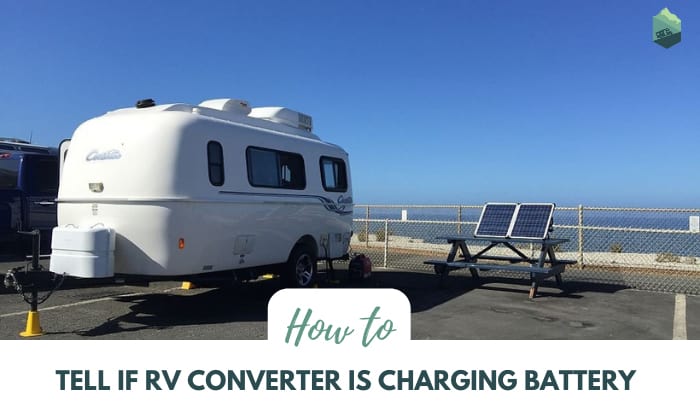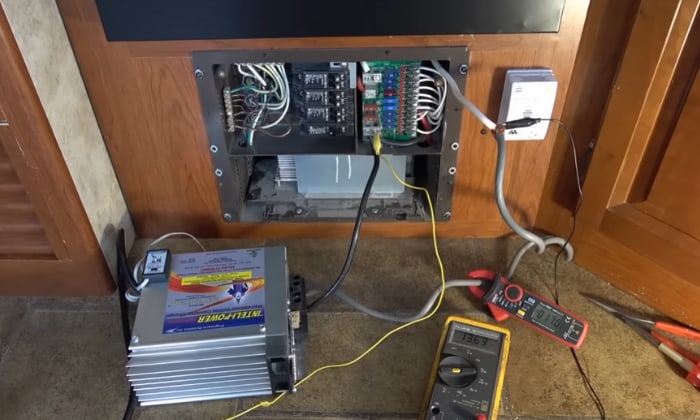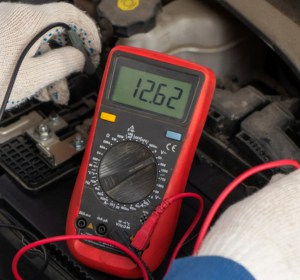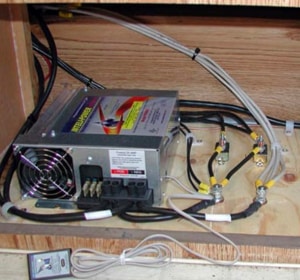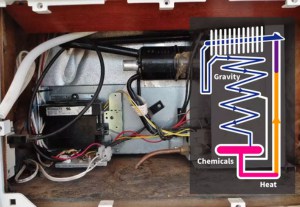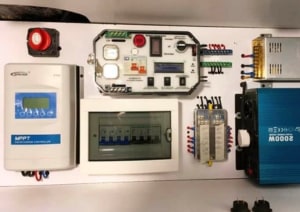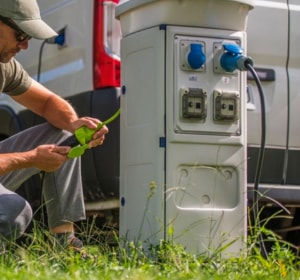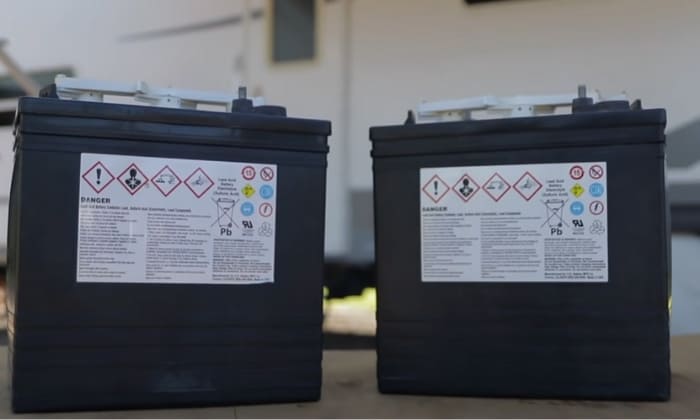You could actually know if your RV converter is charging its batteries if the indicator lights are on, the fan is running, it has a steady voltage power, and it isn’t draining the battery when charging.
Here’s a comprehensive guide for you on how to tell if RV converter is charging battery.
Page Contents
How RV Converters Charge Batteries
RVs usually come with an AC (alternating current) charger, more commonly known as a converter charger, to charge the recreational vehicle’s batteries. The converter charger RVs use converts your RV’s 120 V AC power to 12 V DC (direct current) power.
Some RV converters also come with inverter charges that can reversely convert 120V to 12V alternately, compared to a converter charger, a one-way RV charging system.
Regardless of your RV electrical converter’s charger type, the power can come from a generator, your RV’s alternator, a solar panel, or shore power charging.
Signs of a Charging RV Converter
So, how do you know if your RV power converter is charging? Here are the things that you’ll need to look into:
1. Check your battery system
A working RV battery should have a voltage of 12 V or higher. To check your battery’s voltage, look for your battery near your RV’s propane tanks and have a multimeter or voltmeter on hand.
Then, connect your battery’s positive (black) leads to your ground (white) one. Take the other positive lead (red) and connect it to the left lead. Read the voltage, and you’re good to go if it’s, say, 13.5 V.
2. Check your indicator lights
When you’re in charge mode, your RV converter’s indicator lights should be open. It shouldn’t be flickering or completely turned off. If this is the case, your power converter may already be bad and needs troubleshooting.
3. Check for fan noise
One common indicator that your RV converter is charging the battery is when the RV converter’s cooling fan is working and is making some fan noise.
Check RV converter cooling fan. If you don’t hear any fan noise or are not consistently propelling, it won’t be able to ‘cool’ the system down. This leads to overheating issues that cause your battery not to charge at all.
Troubleshooting Common Issues With RV Converters
There are two main issues when it comes to your RV converter chargers– your RV converter not charging battery or your RV battery draining while plugged in.
Below are multiple methods you can use troubleshoot and fix them, depending on the specific issues at hand:
1. Clean your batteries
Your batteries might just have minimal corrosion and just need a little bit of cleaning.
Simply remove the rust by scrubbing your battery’s terminals with a thick baking soda and water paste for 5-10 minutes.
Connect it again and try to charge it afterward. If the battery still isn’t charging, you can move on to the next troubleshooting process.
2. Check if you have a battery problem
If your voltage level is below 12 volts, you’ll have to have your battery replaced with a new one by an electrician. However, if this isn’t the problem in your case, you may need to look at other aspects.
3. Replace your cooling fan
Try smelling for burns or unpleasant odor. Like checking your batteries’ voltage, check your fan’s voltage. If it’s very low or you see visible damaged parts, replace them with the same
4. Replace your thermal sensor
If the fan voltage is normal, check your thermal sensor power. Again, low power means you might need to replace this component.
5. Replace your diodes and resistors
It might be the diode that overheated if it’s not your fan or thermal sensor. Save this by soldering your diodes or replacing them with new ones.
6. Replace your circuit breaker
If those aren’t the culprit, test RV converter circuit by checking each and every fuse by turning it on and off to the ‘part’ it’s connected to. If everything works well, move on to the next step.
7. Clean your circuit board
Your circuit board might also have unknown white substances. This needs to be cleaned with water and baking soda, just like how you clean your batteries.
8. Check your shore power
If you’ve troubleshot all of these and still haven’t found the problem as to why your RV converter isn’t charging the battery, it might be an external issue. Check your power outlets and ensure they’re in good condition.
Frequently Asked Questions
How long does it take for my RV converter to charge?
Different battery sizes have different RV converter charging times. But how long to charge it usually takes 4 to 40 hours for a complete charge.
- Group 24 batteries take 4+ hours
- Group 27 batteries take 10+ hours
- Group 31 batteries take 25+ hours
- Dual 6 V batteries take 25+ hours to charge.
What are the reasons why my RV converter isn’t charging anymore?
You may not be practicing good RV charging habits. Some usual reasons why your RV converter isn’t charging any more or has a short battery life are when you’re overcharging. At the same time, you should also charge your batteries up to 100% and not any less.
Conclusion
To answer your question, ‘how to tell if RV converter is charging battery,’ you’ll know it’s working if the indicator lights are on, you can hear the fans, and the battery is above 12 volts. If not, you may have to troubleshoot it to be able to charge properly.
Remember, if you’ll be troubleshooting your RV’s converter chargers, you may want to consult a professional electrician to ensure your safety when doing repairs or replacements.
“Hi, I’m Francis’ husband—Calvin. Our story began with our shared passion for traveling. I have had a career journey for over 11 years at Ford Motor Company, where I took on the role of BMS SW Process Engineer.
Together with my wife, I have dedicated countless hours to exploring every nook and corner of the world. Ten years living in an RV may seem long, but time seems to fly by when I’m doing what I love with the person I love.
FMCA’s 103rd International Convention & RV Expo in Gillette, WY,
Like my wife, I hope to help you see the beauty of traveling off the beaten path by sharing insights into this lifestyle. In addition to my corporate roles, I also launched our website – Outdoorbits, in 2015 and continue to contribute my knowledge and skills to the present day. And I’ll be completely honest with you—no hiding the truth or sugarcoating the possible challenges.
So, if you want to run away from the busy lifestyle to embrace nature, I’m your guy.”
